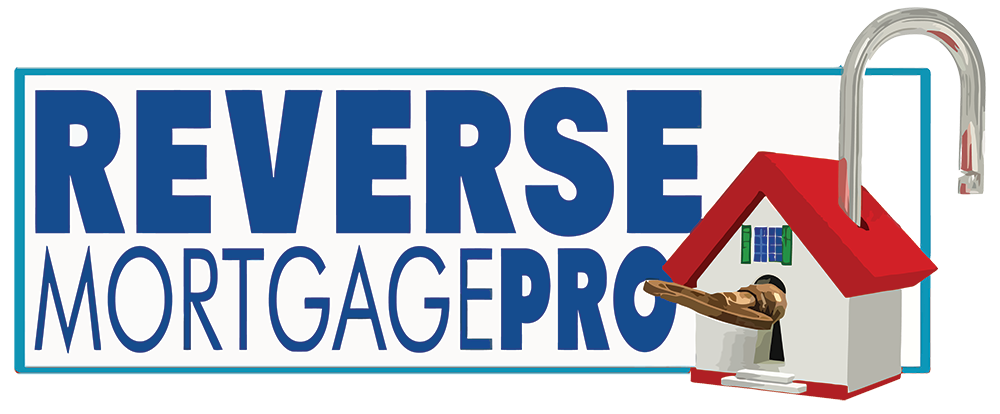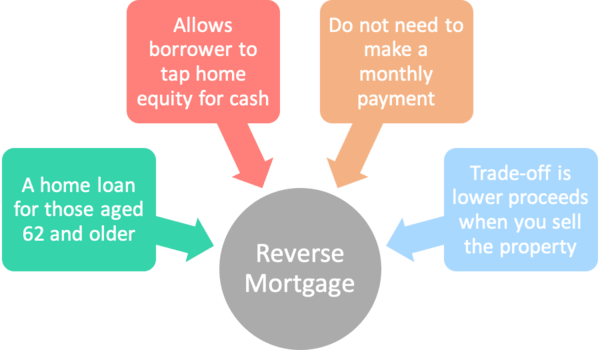How to Purchase Reverse Mortgage and Use It to Fund Your Future
Wiki Article
Empower Your Retirement: The Smart Way to Acquisition a Reverse Mortgage
As retirement strategies, numerous individuals seek efficient approaches to enhance their economic independence and wellness. Amongst these strategies, a reverse home loan becomes a practical choice for house owners aged 62 and older, permitting them to tap right into their home equity without the need of month-to-month payments. While this economic tool supplies numerous benefits, including boosted money flow and the potential to cover vital costs, it is vital to comprehend the ins and outs of the application procedure and crucial factors to consider entailed. The following actions might disclose exactly how you can make a knowledgeable decision that can substantially influence your retirement years.Recognizing Reverse Home Mortgages
Understanding reverse home loans can be critical for homeowners seeking monetary versatility in retirement. A reverse mortgage is a monetary item that permits eligible property owners, commonly aged 62 and older, to convert a portion of their home equity into money. Unlike standard home mortgages, where customers make regular monthly repayments to a lender, reverse home mortgages allow home owners to obtain repayments or a round figure while maintaining possession of their property.
The quantity offered via a reverse home mortgage depends on a number of factors, including the property owner's age, the home's worth, and existing rates of interest. Importantly, the financing does not need to be paid off until the house owner markets the home, leaves, or passes away.
It is necessary for prospective customers to comprehend the implications of this economic item, consisting of the effect on estate inheritance, tax obligation considerations, and recurring duties associated to building upkeep, tax obligations, and insurance. In addition, counseling sessions with accredited experts are often required to make certain that consumers completely understand the terms of the finance. Generally, a thorough understanding of reverse mortgages can encourage homeowners to make enlightened choices regarding their economic future in retirement.
Benefits of a Reverse Home Mortgage
A reverse home loan uses a number of compelling benefits for eligible property owners, especially those in retired life. This financial tool enables elders to transform a section of their home equity right into cash money, providing important funds without the requirement for regular monthly mortgage payments. The cash acquired can be used for different purposes, such as covering clinical costs, making home improvements, or supplementing retirement revenue, thus enhancing general financial flexibility.One considerable advantage of a reverse mortgage is that it does not call for settlement until the property owner vacates, markets the home, or dies - purchase reverse mortgage. This function makes it possible for retirees to keep their way of life and meet unexpected costs without the problem of regular monthly settlements. Furthermore, the funds gotten are generally tax-free, enabling homeowners to utilize their money without worry of tax obligation implications
Furthermore, a reverse mortgage can give assurance, recognizing that it can work as a monetary safeguard throughout difficult times. Home owners also retain ownership of their homes, guaranteeing they can continue staying in a familiar setting. Inevitably, a reverse mortgage can be a calculated financial resource, encouraging retired people to handle their finances effectively while enjoying their golden years.
The Application Process
Navigating the application process for a reverse mortgage is an important step for homeowners considering this financial choice. The initial phase involves examining eligibility, which generally requires the homeowner to be at the very least 62 years old, very own the building outright or have a low home mortgage equilibrium, and occupy the click to investigate home as their key home.When qualification is validated, house owners need to undergo a counseling session with a HUD-approved therapist. This session makes sure that they completely recognize the ramifications of a reverse home mortgage, including the responsibilities entailed. purchase reverse mortgage. After finishing counseling, applicants can proceed to gather needed documents, consisting of evidence of revenue, assets, and the home's worth
The following step entails sending an application to a lender, that will examine the economic and home credentials. An assessment of the home will certainly likewise be carried out to establish its market worth. If accepted, the loan provider will certainly present funding terms, which must be evaluated thoroughly.
Upon approval, the closing process follows, where final files are signed, and funds are disbursed. Understanding each phase of this application procedure can substantially boost the home owner's confidence and decision-making regarding reverse home loans.

Key Considerations Before Acquiring
Investing in a reverse home loan is a significant monetary decision that calls for cautious consideration of a number of vital variables. Comprehending your qualification is essential. Homeowners must be at least 62 years old, and the home has to be their key home. Evaluating your economic needs and goals is just as vital; determine whether a reverse home loan straightens with your long-term plans.
A reverse home mortgage can impact your eligibility for certain government advantages, such as Medicaid. By thoroughly examining these considerations, you can make an extra educated decision concerning whether a reverse home loan is the appropriate economic approach for your retired life.
Maximizing Your Funds
Once you have secured a reverse home loan, effectively managing the funds ends up being a concern. The flexibility of a reverse home loan allows property owners to make use of the funds in numerous methods, but strategic planning is important to maximize their advantages.One vital technique is to produce a budget plan that describes your monthly expenditures and monetary objectives. By recognizing required expenses such as healthcare, real estate tax, and home maintenance, you can allocate funds appropriately to make certain long-lasting sustainability. In addition, consider using a part of the funds for financial investments that can produce revenue or value in time, such as dividend-paying supplies or common funds.
An additional essential facet is to preserve an emergency fund. Setting aside a book from your reverse home mortgage can help cover unforeseen costs, providing comfort and financial security. Moreover, speak with an directory economic advisor to explore feasible tax implications and just how to incorporate reverse mortgage funds right into your overall retirement method.
Inevitably, prudent management of reverse home loan funds can boost your monetary protection, enabling you to enjoy your retirement years without the tension of financial unpredictability. Mindful planning and informed decision-making will certainly make certain that your funds work efficiently for you.
Final Thought
To conclude, view website a reverse mortgage presents a sensible economic strategy for seniors seeking to enhance their retired life experience. By transforming home equity into accessible funds, individuals can address necessary costs and protected added monetary resources without incurring monthly payments. Careful consideration of the associated ramifications and terms is vital to make the most of advantages. Inevitably, leveraging this monetary device can facilitate better freedom and boost general lifestyle throughout retired life years.Recognizing reverse mortgages can be critical for house owners looking for financial versatility in retirement. A reverse home loan is a financial item that permits eligible house owners, usually aged 62 and older, to transform a portion of their home equity right into cash money. Unlike typical mortgages, where debtors make month-to-month payments to a lender, reverse home mortgages allow house owners to get settlements or a lump amount while maintaining possession of their property.
In general, a complete understanding of reverse home loans can equip property owners to make informed decisions concerning their financial future in retired life.
Consult with a financial expert to discover feasible tax ramifications and exactly how to integrate reverse mortgage funds into your general retirement method.
Report this wiki page